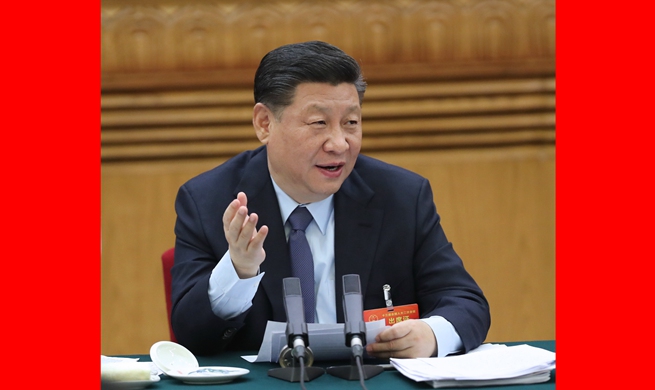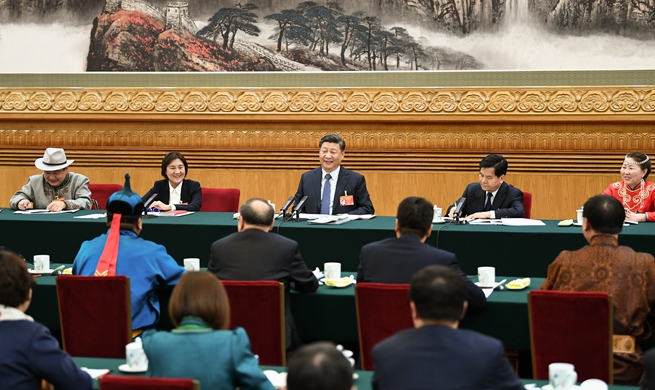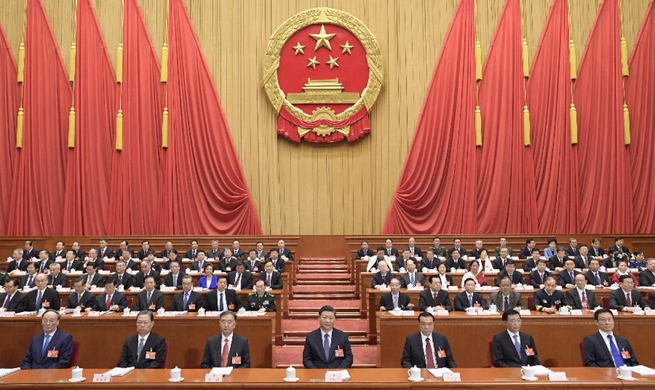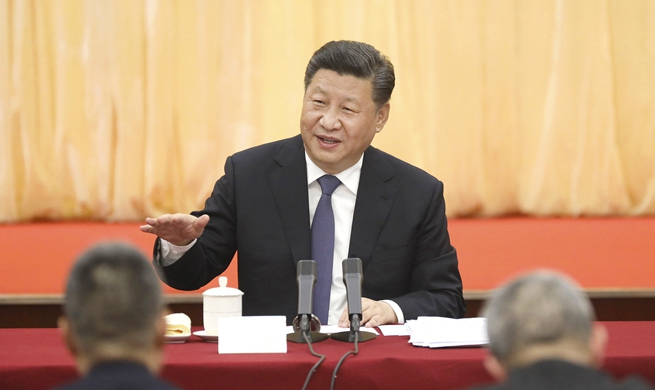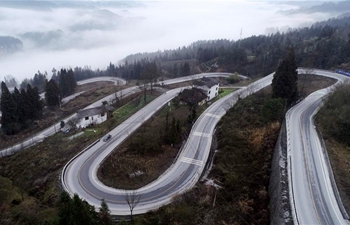LONDON, March 7 (Xinhua) -- British Chancellor of the Exchequer Philip Hammond said Thursday a crucial vote on Prime Minister Theresa May's Brexit deal by next Tuesday could be the last chance for Britain to leave the European Union (EU) on its planned March 29 departure date.
In a radio interview on Thursday, Hammond said he had great confidence in the Brexit Secretary and the Attorney General in the work they are doing and hoped they will come back with an offer which MPs on the Brexit wing of the governing Conservative party will "consider very, very carefully in the context of the real situation we are in."
"If the Prime Minister's deal does not get approved on Tuesday then it is likely that the House of Commons will vote to extend the Article 50 procedure to not leave the European Union without a deal and where we go thereafter is highly uncertain," the Chancellor added.
The EU was reported Thursday to have given Britain 48 hours, with a Friday deadline, to table new proposals to break the impasse on the Irish border issue which remains the big stumbling block in talks on a future trading relationship.
In what is a fast-changing crisis, the countdown has started to be one of the most critical periods in recent British politics, deciding the fate of Britain's future in the EU.
May will present to MPs in the House of Commons the deal she wants to sign with Brussels to signal the ending of Britain's membership of the EU.
Media in London reported that May's Cabinet is resigned to her deal being lost by up to 100 votes next week.
May is also considering to make a major speech on Friday urging politicians to support her deal.
Britain's negotiators, led by Brexit Secretary Stephen Barclay and Attorney General Geoffrey Cox, and EU leaders confirmed that the latest round of tough negotiations on Wednesday did not lead to any break in an impasse over the fate of the border between Northern Ireland and Ireland.
Talks between British ministers and the EU officials were described by both sides as difficult, with the EU going further and insisting there had been no breakthrough.
Brussels has insisted that there must be a legal backstop to prevent a hard border between British controlled Northern Ireland and the Republic of Ireland which is a member of the bloc.
The 500 km border between the two sides will be the only EU frontier in the British Isles after Brexit.
With a planned March 29 departure date looming, nobody knows how more than 640 lawmakers in Parliament will decide the result of May's proposals in a meaningful vote due on Tuesday.
The deal has already been rejected by a margin of 230 votes, the biggest defeat in recorded British political history.
Undaunted by that defeat, May has continued to press her deal, hoping that EU negotiators will agree on the Irish border issue.
If MPs reject May's deal again they will be given a vote next week on leaving the EU without a deal or delaying Britain's departure from the EU beyond March 29.
Political commentators predicted that EU negotiations usually go to the wire, and they expected that to happen in the Brexit negotiations.
Separately, Jeremy Corbyn, leader of the main opposition Labour Party, has been meeting Conservative MPs in a bid to win support for an alternative to May's Brexit deal. Many Labour MPs though want a second referendum to decide the issue.






